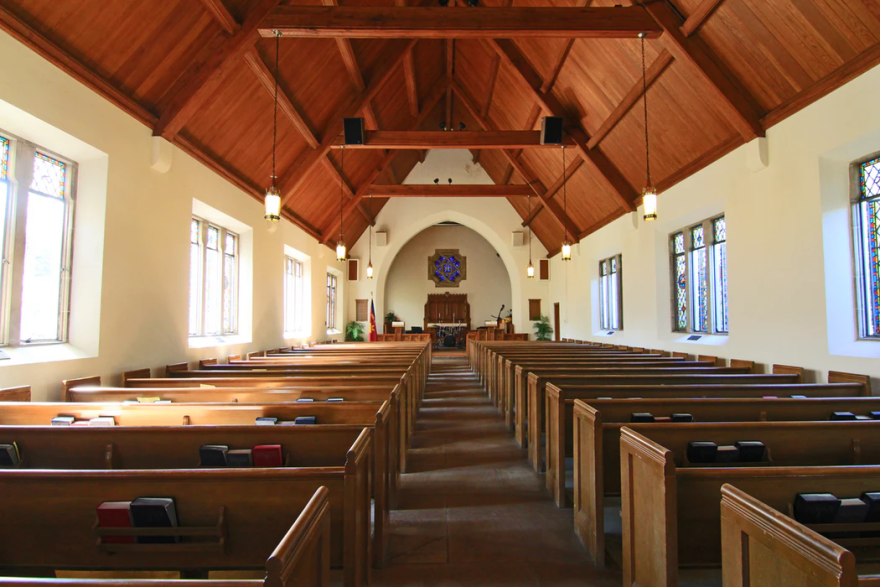Whether passing the peace, the communion chalice or the collection plate, touch is central to many church congregations. But while church members are sheltering at home, pastors and faith leaders have had to find new ways to provide their parishioners with a sense of togetherness.
From Zoom bible studies and Sunday services to worshiping in parked cars at the local drive-in, churches are committed to imparting messages of peace and hope as prolonged isolation and social distancing cause worry and despair for many.
Host Frank Stasio talks to , professional counselor and assistant professor at East Carolina University. Will Breedlove, senior pastor of , also joins the conversation to discuss the unique challenges and lessons of pastoring during social distancing.
Four Approaches Churches are Taking to Navigate COVID-19
#
1: Drive-In ServiceWhen COVID-19 led to the statewide cancellation of large gatherings, Pastor Breedlove knew that his church, Harriett Baptist, would struggle with the physical separation. In addition to three Sunday services, they also held Wednesday night services and in-home bible studies at the homes of several parishioners. After converting the in-home bible study services to Zoom, he realized that they were no substitute for in-person connection. He turned to the local drive-in, Raleigh Road Outdoor Theatre, to hold Sunday services, beginning on March 22.
“So far it’s been very positive. I get thank you letters and phone calls and emails just from the church family, just tell[ing] me how much it means to them,” said Pastor Breedlove. “I can see them through their windshields, and I can wave at them, just let them know that I care, and I love my church family.”
Harriett Baptist isn’t the only church turning to outdoor movie theatres to hold services. Across the state, churches have explored this option, .
#2: Zoom & Livestream Solutions
Perhaps the most popular adaptation for COVID-19-era worship is one that long predates the pandemic. Live-streamed Sunday services have been around for years, but now rather than a video feed broadcast from inside the sanctuary, pastors are preaching from inside their homes. Zoom allows them to see the faces of their parishioners, instead of just talking to an iPad with no face-to-face engagement.
“I’ve seen the Zoom calls. I’ve seen the conference calls. I’ve seen a lot of diversity in people trying to reach different generations — or as we think about being in rural eastern North Carolina — also people with different access to internet and online capabilities,” said Avent Harris. “It's really thinking about what are the core elements. What are our core values and how do we disseminate it in a way that is readily accessible?”
#3: Churches Supporting Churches
As resources and connection to one another thin out, small churches will feel the impact first and most. Pastors of larger churches are already beginning to anticipate this and are looking for ways to support their fellow leaders, spiritually and materially. Offering consistent encouragement is a major part of that process.
“Yesterday I was on a Zoom conference with eight other pastors, and we just took time to pray for one another because you know as leaders, you have more responsibility on your shoulders, so it's nice to know that people are praying for you,” said Pastor Breedlove.
#4: Meeting Congregants Where They Are
Not every churchgoer has the transportation or the technology to connect at the drive-in or online. Marginalized communities are more vulnerable to isolation, hunger, and mental health challenges during prolonged social separation. Some pastors have become more attuned to the fundamental needs of their congregants in the past month.
“The word grace is coming to my mind ... No one's been here before. This is unprecedented. We don't have an answer for all of this. And so showing grace to each other, because just like pastors are trying to figure things out, so are members,” said Avent Harris. “We're trying to figure out where we fit, how we adapt to all of this. And so I think that a lot of grace and a lot of wisdom needs to be used as we all figure this out.”










